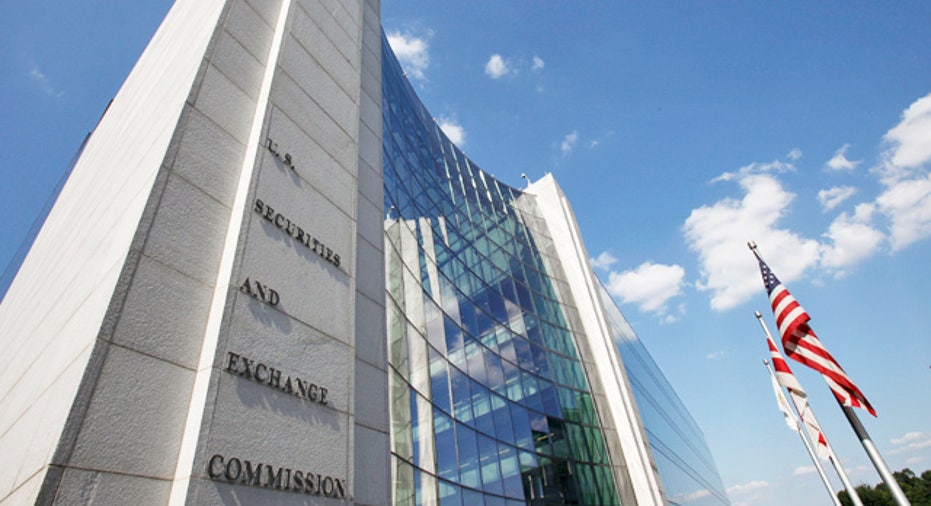Big 3 Avoid Penalty Box While SEC Targets Egan-Jones

Nearly four years after the financial crisis wreaked havoc on the global economy, U.S. regulators are finally coming down hard on the credit-ratings companies that blessed the mortgage-backed securities behind the disaster.
Actually, the Securities and Exchange Commission is laying down the law on just one of those ratings companies -- a tiny player that wasn’t even accredited prior to the meltdown -- and on completely unrelated matters.
These curious circumstances have led some to wonder whether the SEC’s scrutiny of ratings company Egan-Jones is misdirected, especially in the absence of crisis-related charges against the industry’s trio of titans.
Eyebrows are also being raised because the SEC’s charges relate to allegedly inaccurate documents filed by Egan-Jones back in 2008.
“I’m wondering why four years later they’re questioning this. The timing does seem curious,” said David Becher, a professor at Drexel University.
Some have even suggested the SEC’s false-statements and conflict-of-interest charges, which were unveiled on Tuesday, could be payback of sorts for either Egan-Jones’s blown call in November on Jefferies (NYSE:JEF) or its downgrade of the U.S. credit rating last summer.
“In a perfect world I’d love to say that it seems ludicrous the SEC would risk its reputation on such a small firm,” said Bechert. “On the other hand, people are human…It could be convenient. This is a firm that has provided difficulty for them, so it makes them a target.”
Big Three Escape Crisis Intact
Unlike Egan-Jones, the Big Three ratings companies -- Standard & Poor’s, Moody’s (NYSE:MCO) and Fitch Ratings -- have escaped the fallout of the crisis largely unscathed, at least from a regulatory perspective. In fact, this week’s action against Egan-Jones marks just the second time ever the SEC has filed charges against a ratings company, Reuters reported.
That’s despite criticism from many corners for the role they played in the lead up to the meltdown.
These ratings companies, which unlike Egan-Jones are paid by debt issuers, awarded pristine 'AAA' ratings to complex mortgage-related securities that turned out to be toxic. By blessing these collateralized debt obligations with strong credit ratings, they were essentially telling the investing public they were super-safe securities.
Becher believes many parties share blame for the financial crisis, including the American public, investment banks and yes, the ratings companies.
“The view is that these credit-ratings agencies provided very high ratings for what turned out to be very risky assets,” said Becher. “The fact that they have not been held accountable does seem curious.”
Memories of Arthur Andersen
Reports swirled last summer that the Department of Justice was investigating S&P for improperly rating CDOs before the crisis, but charges have yet to emerge.
Part of the reluctance by the U.S. to go after the ratings companies could stem from concerns about a repeat of the aftermath of the Enron scandal.
In the wake of the Enron collapse in 2001, the company’s auditor, Arthur Andersen, was forced out of business after being found guilty of criminal charges tied to the scandal. While justice was seemingly done, the outcome left just four large accounting firms in the U.S., hurting competition.
Becher said a similar outcome today with the ratings companies would stifle competition and lead to even more conflicts of interests.
“Perhaps some people have the fear of, if we drive them out, then who is going to replace them?” Becher said.
SEC Sets Sights on Egan-Jones
None of this is to belittle the charges against Egan-Jones, which if accurate, would certainly be troubling. According to the SEC, Egan-Jones greatly exaggerated its expertise in its application with the agency by inflating the number of securities it rates. The SEC is also alleging analysts at Egan-Jones rated securities they had investments in, another big red flag.
“Egan-Jones and Mr. Egan dispute the allegations and will litigate vigorously,” Jacob Frenkel, an attorney for Egan-Jones, said in a statement earlier this week. “The allegations, which is all they are, do not challenge or question in the slightest the quality, integrity and timeliness of the Egan-Jones ratings."
Still, Peter Tchir, founder of TF Market Advisors in Connecticut, questioned the timing of the SEC case against Egan-Jones.
“Why that wasn’t checked in 2008 is a bit of a mystery to me, or anyone else with access to a computer, but somehow, four years later, that came up in a review?” Tchir wrote in a note.
Some believe the SEC case could be payback for the fumbled downgrade of Jefferies on November 2 of last year that helped cause a plunge in the midsize investment bank’s shares.
Weeks later an Oppenheimer analyst criticized the report, saying it contained “epic errors of fact.”
But that theory is hurt by the issue of timing. According to The Wall Street Journal, the SEC warned Egan-Jones in October 2011 -- days prior to the blown Jefferies call -- it could face an enforcement action.
The argument that the SEC case is tied to the downgrade of the U.S. credit rating works timing-wise as Egan-Jones made that high-profile call back in July 2011.
After S&P similarly downgraded the U.S. last summer, its president stepped down just two weeks later, although the parent company McGraw-Hill (NYSE:MHP) said it was unrelated to that polarizing move.



















